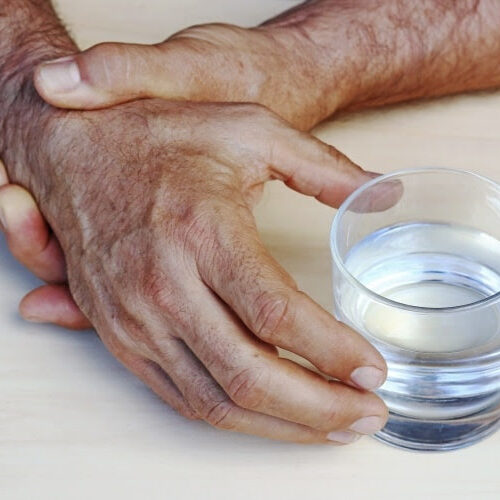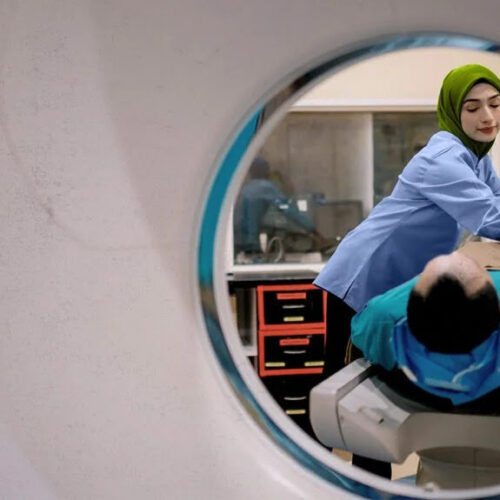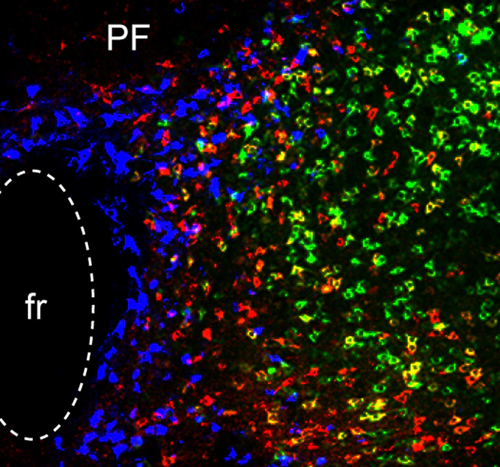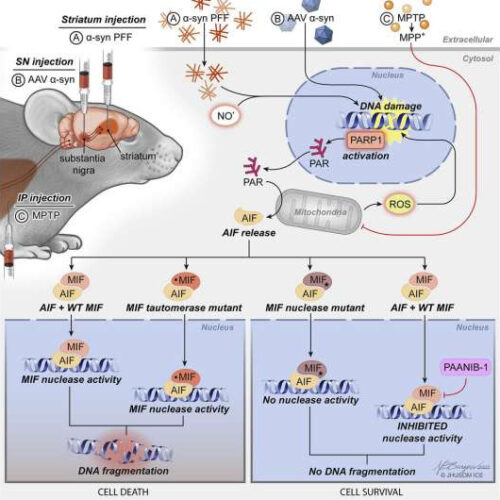(Dreamstime) Wednesday, 26 April 2023 04:57 PM EDT An extended-release version of a Parkinson’s disease drug could provide more stable relief for patients with the movement disorder, new clinical trial data show. The new formulation of levodopa, called IPX203, extended the duration of patients’ “on time” — the amount of time the medication is working and symptoms...
Tag: <span>Parkinson’s symptoms</span>
Focused ultrasound can improve Parkinson’s symptoms for up to 1 year
Image credit: Edwin Tan/Getty Images. A recent study introduces a new, noninvasive means of using focused ultrasound to reduce the symptoms of Parkinson’s disease. The technique involves destroying a small neuron cluster to interrupt the neuronal network that produces uncontrolled movement and motor impairment. Compared to study participants receiving a sham treatment, twice the number of individuals receiving...
Three distinct brain circuits in the thalamus contribute to Parkinson’s symptoms
MASSACHUSETTS INSTITUTE OF TECHNOLOGY IMAGE: IN THIS IMAGE OF THE PARAFASCICULAR (PF) THALAMUS, THE BLUE CELLS PARTICIPATE IN REWARD PROCESSING/DEPRESSION, THE RED CELLS ARE CRITICAL FOR MOTOR LEARNING, AND THE GREEN CELLS ARE IMPORTANT FOR GENERAL LOCOMOTION. THE ‘FR’ STANDS FOR A FIBER BUNDLE. CREDIT: YING ZHANG AND DHEERAJ ROY CAMBRIDGE, MA — Parkinson’s disease...
Chemical inhibitor blocks final path to cell death in mice with Parkinson’s symptoms
by Johns Hopkins University School of Medicine Graphical abstract. Credit: Cell (2022). DOI: 10.1016/j.cell.2022.04.020 In studies in mice, Johns Hopkins Medicine researchers say they have identified a chemical compound that stops the final events in the pathway linked to the death of brain cells in Parkinson’s disease. Results of the experiments, they say, could advance the development...
Individualized brain cell grafts reverse Parkinson’s symptoms in monkeys
Grafting neurons grown from monkeys’ own cells into their brains relieved the debilitating movement and depression symptoms associated with Parkinson’s disease, researchers at the University of Wisconsin–Madison reported today. In a study published in the journal Nature Medicine, the UW team describes its success with neurons made from induced pluripotent stem cells from the monkeys’ own...





